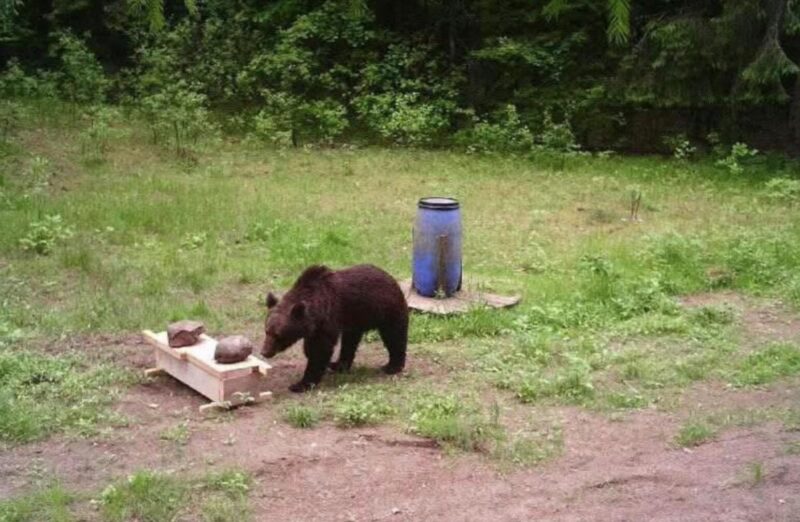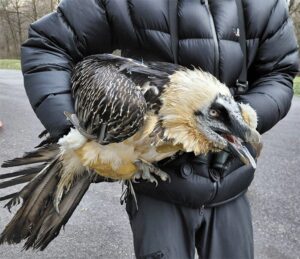A young female bear spent last weekend roaming the leafy suburbs of Vilnius, the capital of Lithuania. She wandered out of the forest and then meandered around residential areas, crossed highways, and explored backyards, completely unaware of the commotion she was causing.
Her short city break quickly captured the nation. Onlookers trailed across the city, capturing footage of her on their smartphones and drones. Concerned for public safety, the Lithuanian government issued a permit to shoot the animal, causing uproar among the hunting community.
Members of the Lithuanian Association of Hunters and Fishermen categorically refused to carry out the order. Brown bears are scarce in Lithuania. The association thinks there are only five to ten individuals left in the country. They were once native to Lithuania but disappeared in the 19th century due to excessive hunting and habitat loss. Recently, small numbers have returned, migrating from neighboring Belarus and Latvia.
Lost, not aggressive
The association disagreed with the government’s directive to shoot the bear, which is endangered and protected by Lithuanian law. This bear had shown no aggressive behavior. Ramute Juknyte, the association’s administrator, told the Associated Press that the two-year-old bear was “a beautiful young female” and was frightened rather than hostile. “She just didn’t know how to escape the city, but she didn’t do anything bad.”
First spotted in the capital on Saturday, the bear finally came within four to five kilometers of the city center. At this point, the hunters suggested a different strategy to move her away from the city. They wanted to sedate, tag, and release her back into the wild.
In the end, none of this was needed. On her own, the young bear ambled back into the forest. By Wednesday, she had left the outskirts of Vilnius behind. A forest camera positioned 60km away recorded her quietly feeding on corn.






